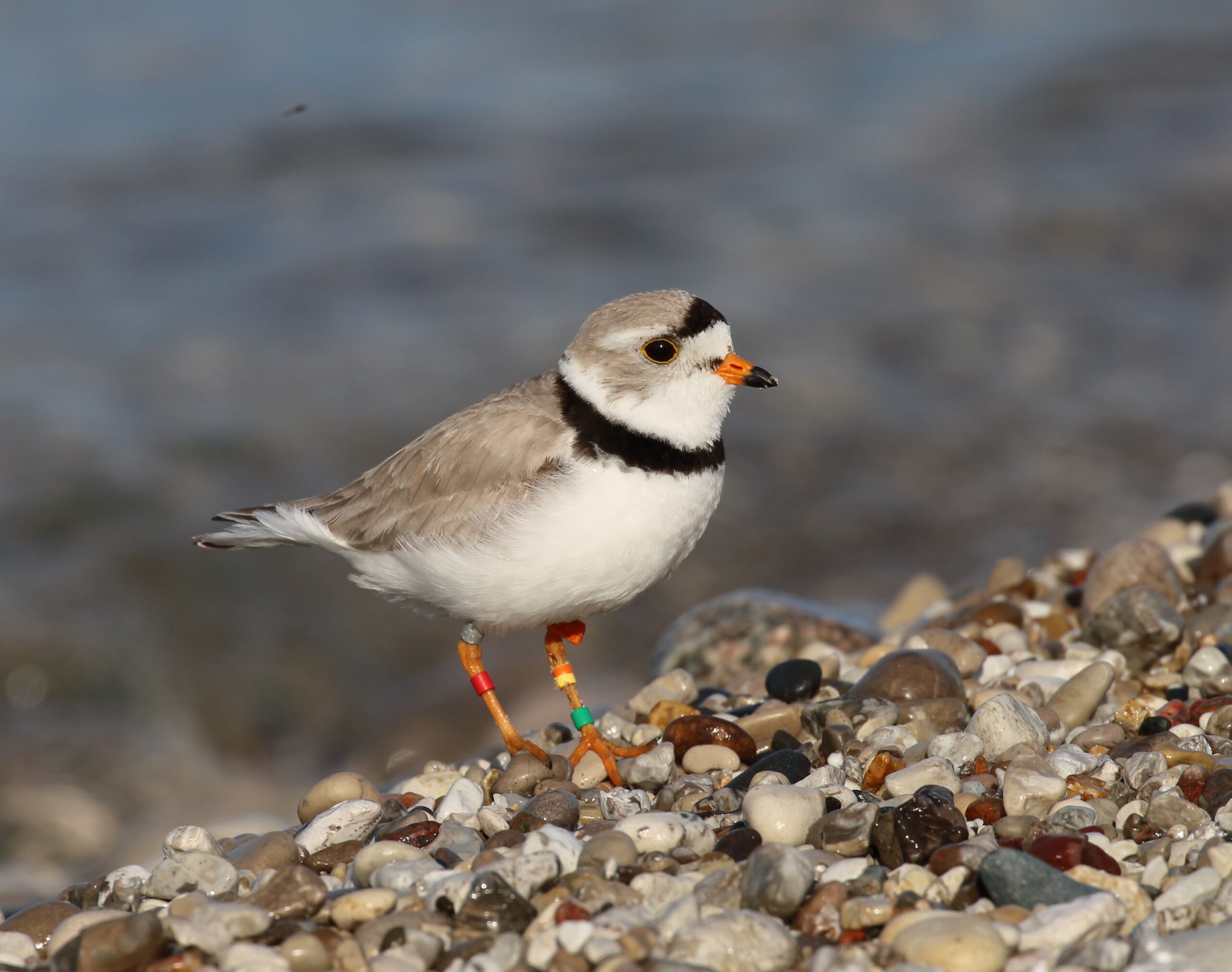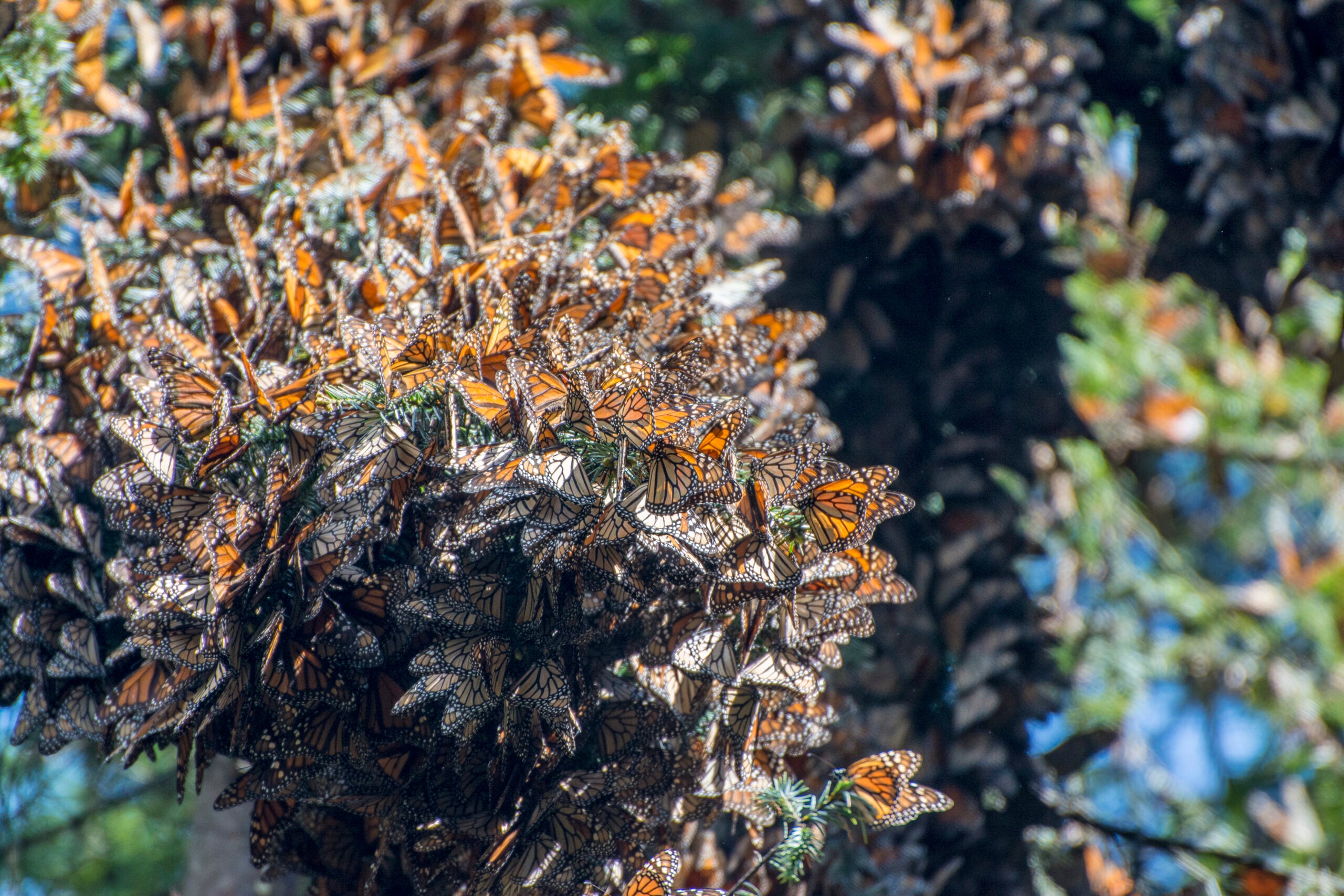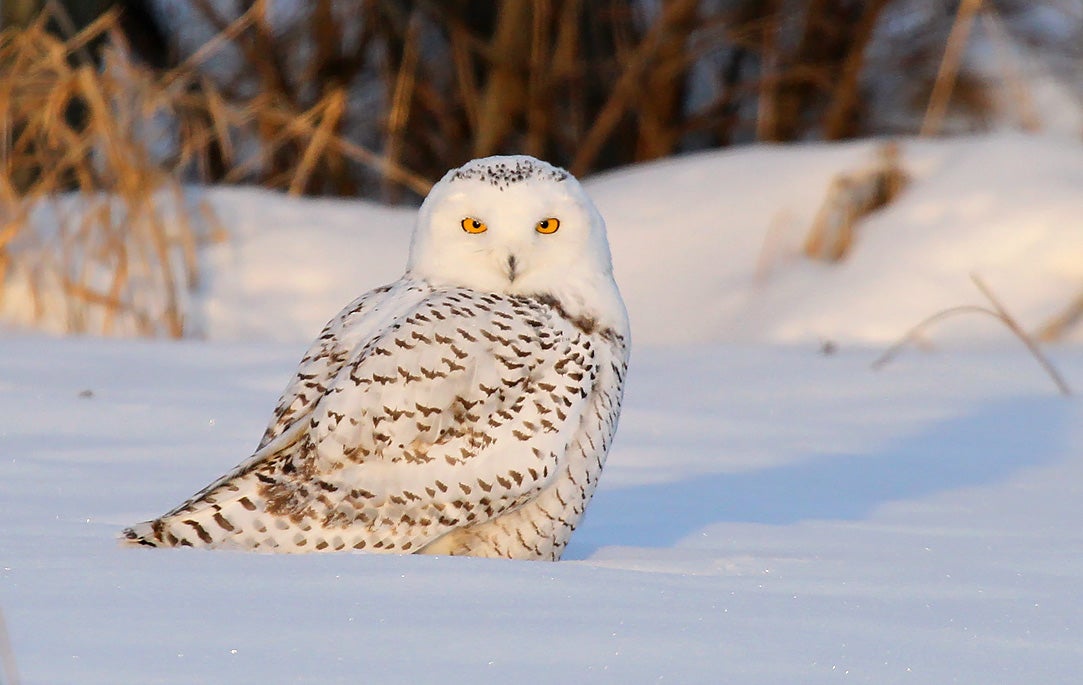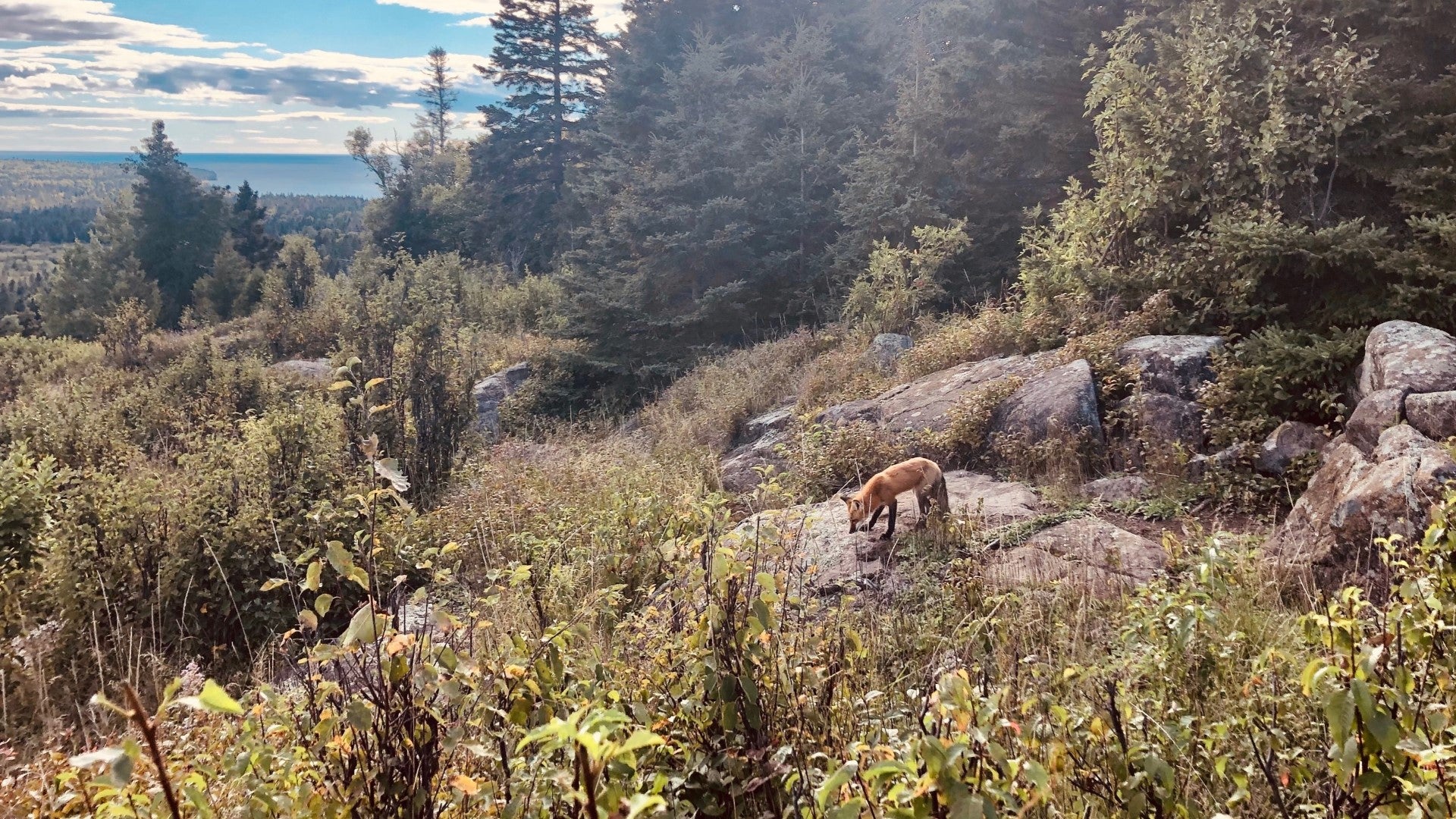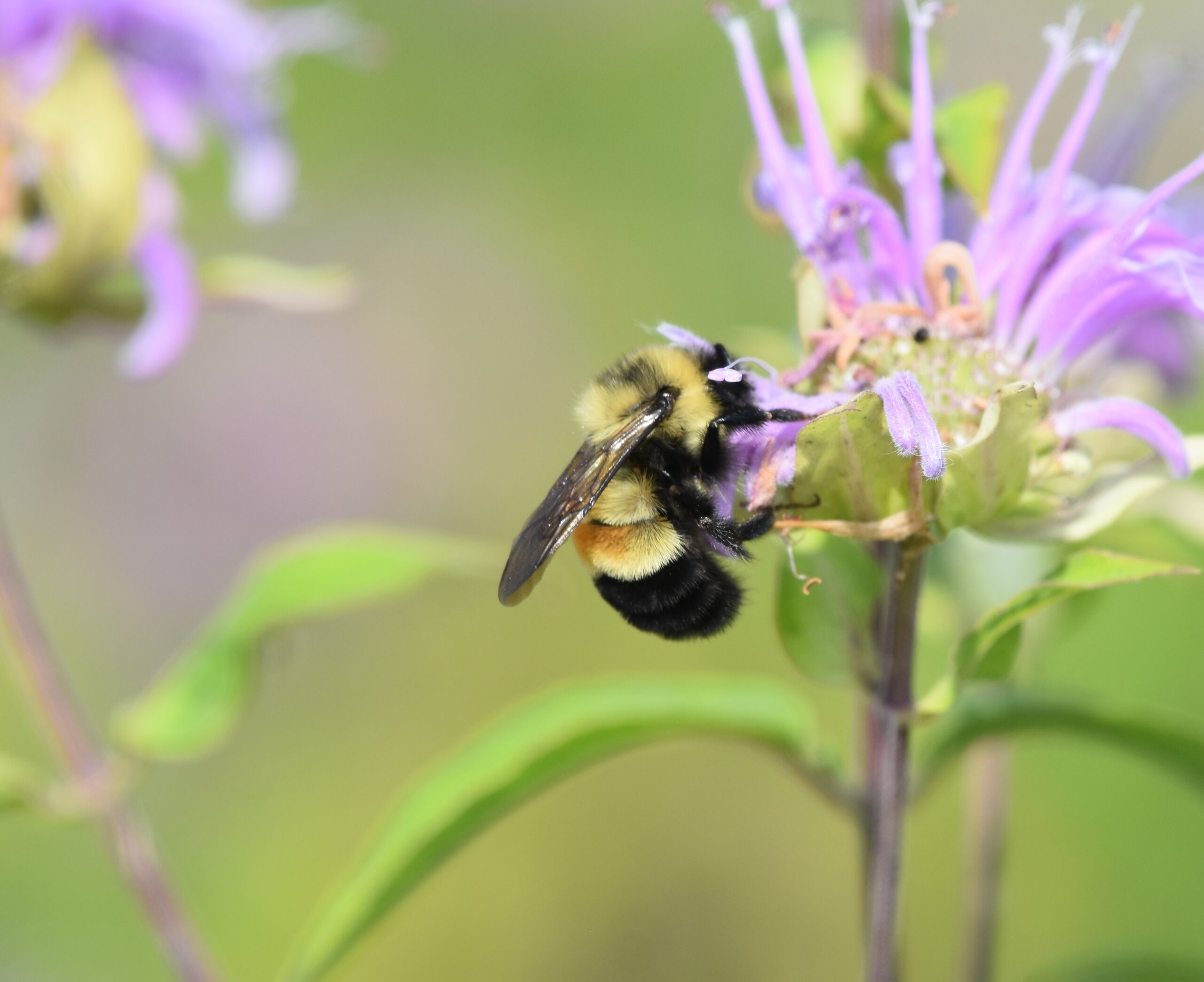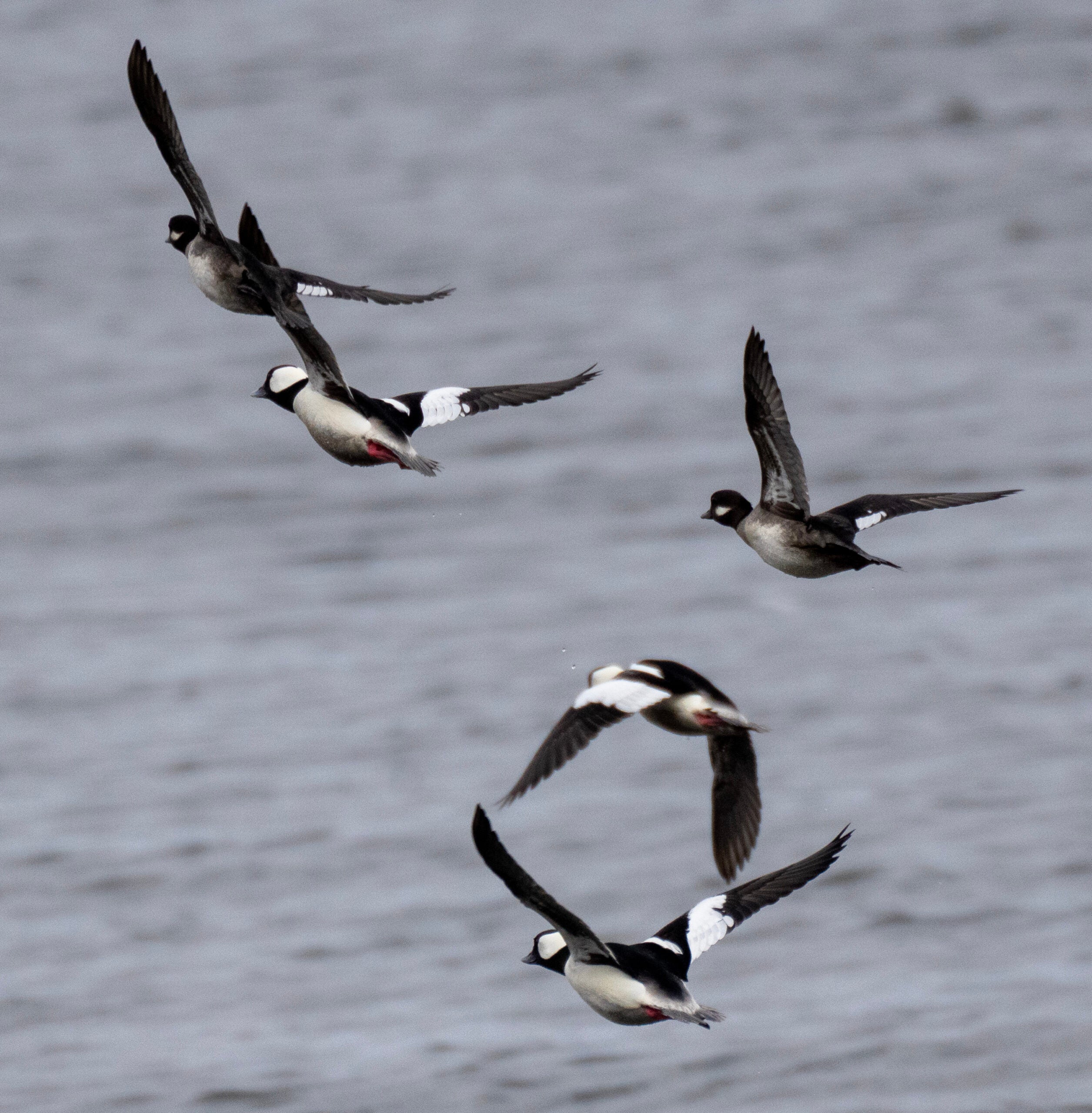Federal, state, tribal and local partners are stepping up efforts to survey and protect an endangered shorebird on the Great Lakes this year. High water levels have left less room on beaches for the piping plover to nest.
Avian ecologist Sumner Matteson with the Wisconsin Department of Natural Resources said the agency is paying more attention to sites staff may not have visited in the past that could be suitable for the bird.
“We’re concerned about loss of habitat due to the rising lake levels that we’ve seen both on Lake(s) Michigan and Superior,” he said.
Stay informed on the latest news
Sign up for WPR’s email newsletter.
Whenever a nest is found, Sumner said they put an exclosure around it, which he likened to a box-like cover with fencing. The exclosure allows the birds to move in and out while protecting the plovers from predators.
So far, Matteson said two nesting pairs have been spotted on the Cat Island Chain in lower Green Bay. He said he also discovered five pairs on Long, Cat, Michigan and Outer islands within the Apostle Islands National Lakeshore.
Around 100 piping plover chicks have been born on Chequamegon Point within the last 15 years on the Apostle Islands of Lake Superior, said Matteson.
Lynne Dominy, superintendent of the Apostle Islands National Lakeshore, said the birds are not just vulnerable to habitat loss.
“The challenge with plovers is they nest on the ground and right in sandy areas,” she said. “They’re where people are trying to be themselves often with people that are walking on the shoreline — people with pets.”
Dominy said they work with the Bad River Band of Lake Superior Chippewa to limit disturbances from humans and pets.
Eric Andrews, the tribe’s climate change coordinator, said they have two monitors that keep track of the birds in four-day shifts.
“We keep one person out there at all times to record the nests, how they’re progressing, the presence of chicks, to record the bands on the birds, as well as to coordinate with any boaters or any visitors to the beach to let them know of the bird’s presence and help them avoid disturbing the nests,” Andrews said.
In addition to those efforts, Matteson said the DNR is also working with the U.S. Fish and Wildlife Service, U.S. Environmental Protection Agency and Army Corps of Engineers to design and create new nesting habitat this fall for 1,700 feet of shoreline within the St. Louis River estuary on the Wisconsin Point Bird Sanctuary in Superior. He said they’ll be expanding the size of the beach area and putting down patches of cobblestone to encourage the endangered shorebird to nest.
“We do know they’re in the area. They’ve been observed nearby on Minnesota Point so we’re quite optimistic,” said Matteson. “It’s sort of a build it and they will come scenario.”
Matteson said they’re working closely with the St. Louis River Alliance on monitoring piping plovers there. The alliance’s executive director Kris Eilers said both Minnesota Point in Duluth and Wisconsin Point are important stop-over sites for the bird during migration.
“We’re going to continue to see the birds moving around because of high water and that’s why we’re so hopeful that the birds will end up using the new habitat,” she said.
Eilers said the alliance will continue to conduct monitoring as part of the project, as well as provide habitat maintenance by removing debris and unwanted vegetation. She said pet owners who keep their dogs on a leash would help protect the endangered shorebird on Minnesota Point and Wisconsin Point.
At last count, there were 67 breeding pairs documented across the Great Lakes, which is down from previous years. Matteson said the federal recovery goal is to achieve 150 nesting pairs across the Great Lakes.
The piping plover was listed as endangered in 1985.
Wisconsin Public Radio, © Copyright 2025, Board of Regents of the University of Wisconsin System and Wisconsin Educational Communications Board.

